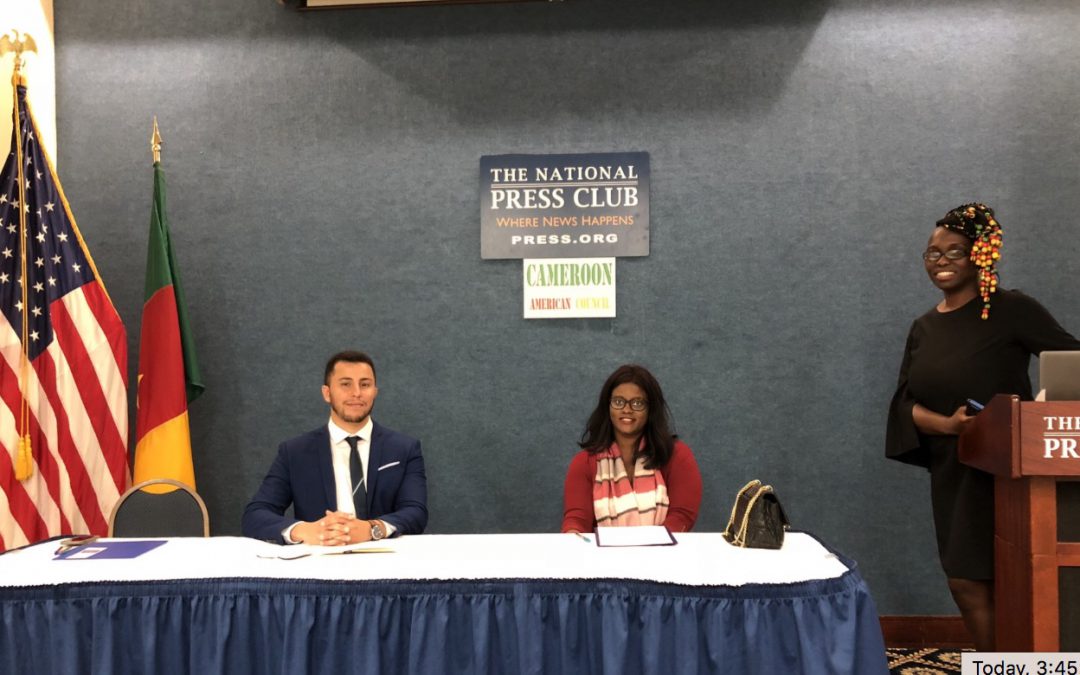WASHINGTON – A coalition of African political organizers Tuesday offered advice on how to oust Cameroon President Paul Biya in preparation for next week’s official presidential election results, which Biya opponents suspect have already been manipulated to show a Biya landslide.
The results of the Oct. 7 election in Cameroon were leaked Monday, allegedly by the government, a week before the official announcement is to take place. The leak placed Biya, who has been president of Cameroon for 36 years, as the clear winner of the election. The opposition claimed his regime manipulated the numbers.
African liberation leaders from The Gambia and Libya, which have histories of successfully overthrowing dictators, met with the Cameroon Alliance for Coalition at the National Press Club to share strategies for mobilizing the opposition in country.
The opposition is fueled by crises all along the nation’s borders. Boko Haram, the extremist Islamist terrorist group, has extended beyond Nigeria into the northern region of Cameroon. The western part of the country is struggling to contain a growing secession movement led by the minority English-speaking population who says they are not treated fairly in the economy.
“Nothing is new on Earth. What is happening in Cameroon has happened in other countries, so we can learn from how they’ve handled it,” said the Cameroon Alliance for Coalition Founder Sylvie Qwasinwi Ngassa Bello.
Mosadeq Hobrara, a key player in the Arab Spring uprising that successfully overthrew Libyan dictator Muammar Gaddafi in 2011, explained that social media like WhatsApp and Facebook were crucial components to their populist movement.
“Social media is dangerous for dictators. You can use it to overthrow them,” said Hobrara.
Fatu Camara, a Gambian journalist said, hashtags were used to organize the opposition that overthrew Gambian dictator Yahya Jammeh in 2016. Camara and other opposition leadership used WhatsApp and Facebook to communicate directly outside of government control.
Both Camara and Hobrara emphasized the importance of outside help from friends and family who fled the country. Because of them, the Gambian opposition received phones with internet access. The Libyan diaspora stormed embassies across the world to bring global awareness to their struggle, he said.

